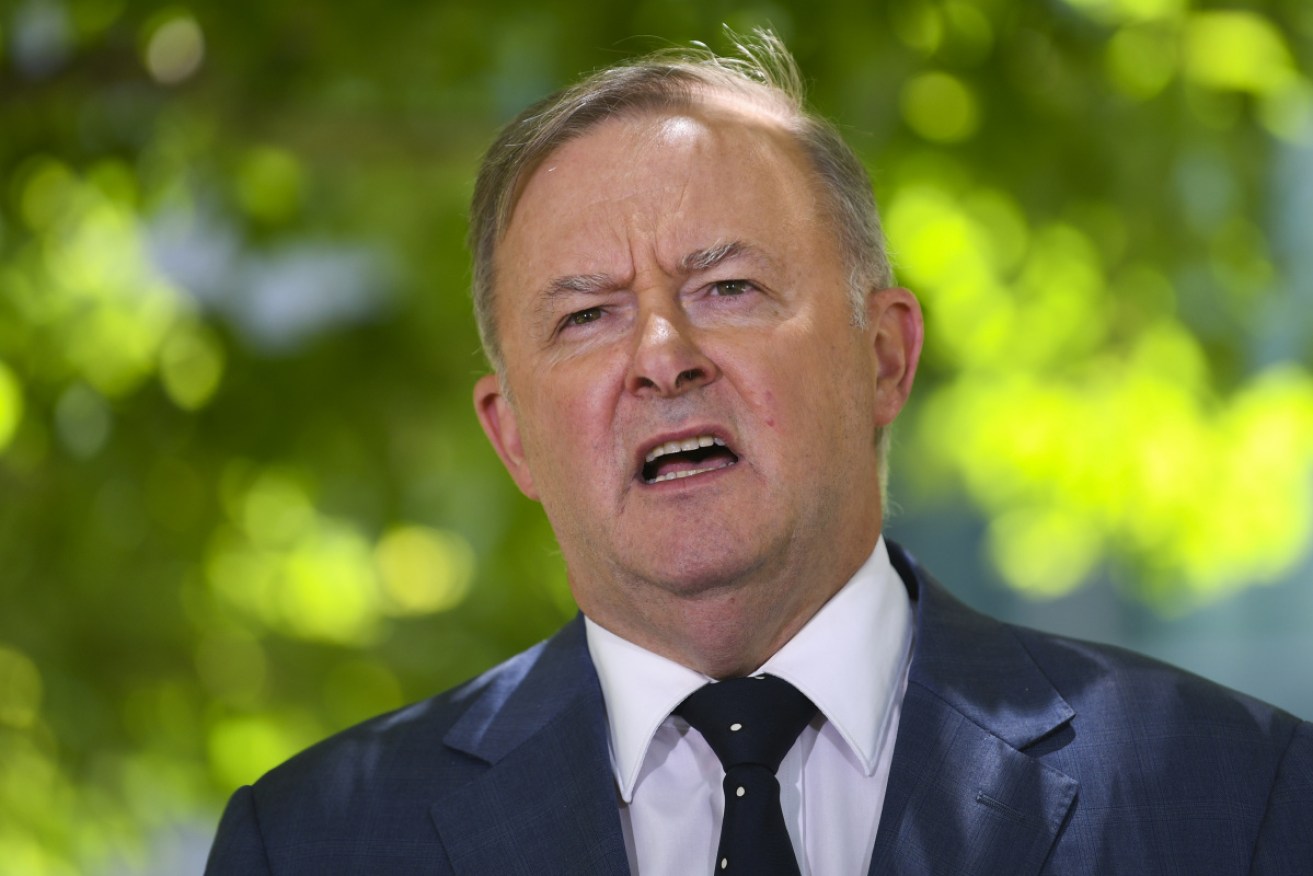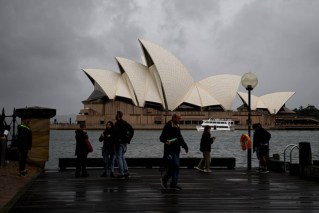‘Worst since WorkChoices’: Unions declare war on workplace changes


Labor called the changes a "pay cut" and a "betrayal" Photo: AAP
Unions might mount huge workplace strikes in a massive campaign against the federal government’s sprawling industrial relations changes, slammed as “the worst thing since WorkChoices” on Wednesday.
“We aren’t ruling anything out,” said a defiant Sally McManus, secretary of the Australian Council of Trade Unions.
Australian politics is set for another bruising showdown on IR changes, with Labor promising to block the changes, which Opposition Leader Anthony Albanese called “nasty” and “draconian”.

ACTU Secretary Sally McManus and President Michele O’Neil. Photo: AAP
Under the government’s IR omnibus bill, finally introduced into parliament on Wednesday after days of drip-feeding various details, employers could alter workers’ pay and conditions if a business has been affected by the pandemic.
Industrial Relations Minister Christian Porter said this would have to be applied for and approved by the Fair Work Commission, and the power would be wound back in 2023. But unions fear it will lead to workers being locked into unfair workplace agreements.
BOOT gets the boot
At the heart of the bill are proposed changes to the Better Off Overall Test (BOOT), a workplace bargaining safeguard that means enterprise agreements in individual workplaces can be approved only if they offer workers better conditions than under standard awards.
Under the changes outlined on Wednesday, employers would have more power to apply to the Fair Work Commission to approve agreements that would normally fail the BOOT. The workplace watchdog would consider the effects of COVID on the workplace.
The bill also aims to slash the time the commission has to approve enterprise agreements to 21 days.
“Jobs do depend on continuing changes being made to ensure that we can keep people in jobs and that we get more people back into jobs,” Prime Minister Scott Morrison said.
But Ms McManus fears employers will rush to cut wages in a similar vein to Howard-era WorkChoices laws. She claimed the changes would open the door for all businesses in an industry to cut wages, even those not badly affected by the virus, as they looked to keep up with businesses who had been hurt by COVID.

Christian Porter claimed the changes would create jobs. Photo: AAP
“These changes are dangerous and extreme. WorkChoices allowed employers to cut wages, and this proposal will do that as well,” she said.
“This is the worst thing since WorkChoices.”
Ms McManus said the proposal to amend the BOOT was “the most extreme” idea proposed during months of roundtable discussions between unions and employer groups. She alleged that despite 150 hours of consultation, the government had not mentioned the idea to unions before officially proposing it.
“In other working parties, the government might have picked halfway or more to one side [between unions and employers], this one they’ve just gone with the most extreme view put by the most extreme employers,” she said.
When asked what action the ACTU could take in protest, and whether that could include industrial action like strikes, Ms McManus said all options were on the table for the union movement.
Changes a ‘pay cut’: Labor
Mr Albanese said the changes would be a betrayal of workers.
“This is what a pay cut looks like. This pay cut is the government’s Christmas present to workers who got us through the pandemic,” shadow IR minister Tony Burke said.

Tony Burke said Labor would oppose the changes. Photo: AAP
“The government has taken the Better Off Overall Test and turned it into a test where, under an agreement, every single worker covered can be worse off.”
“Labor will be fighting this piece of legislation.”
But Mr Porter called some of the unions’ concerns “absurd” and suggested Ms McManus had not properly understood the legislation. He said the BOOT needed amending because courts were interpreting it in an “overly legalistic” way.
“If the business is suffering and needs to change something because of the pandemic, they will be able to do that, if the independent umpire, the Fair Work Commission determines that is in the public interest and there is already existing agreement within the parties,” he told a Canberra press conference.
“It seems to me there is a bit of an outrage industry that goes on and I’ve got to find something to attach their outrage to.”
Unions are concerned the BOOT changes might lock workers into poor long-term contracts, but Mr Porter said any COVID-affected agreements would run only for two years.
“This is a time-limited COVID specific exemption which builds on the existing exemption. If you ever did get an exemption for an agreement under this provision, that agreement would only two years,” he said.
“After the normal expiry, either party to the agreement can apply to the Fair Work Commission to have the agreement terminated, which the commission must do if this is not in the public interest. These things would only last for two years.”

Mr Porter said the new contracts would be time-limited. Photo: AAP
Mr Porter also rubbished union claims that one in four workers might cop a pay cut.
“Everyone’s worse off if a business fails and hundreds of jobs go,” he told the ABC.
“Everything in this suite of reforms is designed to keep businesses growing, to grow new jobs, to give people extra hours, to create paths from casual to permanent employment.”
Employer groups back the plan, with Australian Chamber of Commerce and Industry chief executive James Pearson calling it an important first step.
“This is critical to keeping businesses trading rather than insolvent and keep people in work and off the unemployment queues,” he said.
Australian Industry Group chief executive Innes Willox said the commission should have extra discretion to approve agreements that didn’t meet the better off overall test during the pandemic.
-with AAP








